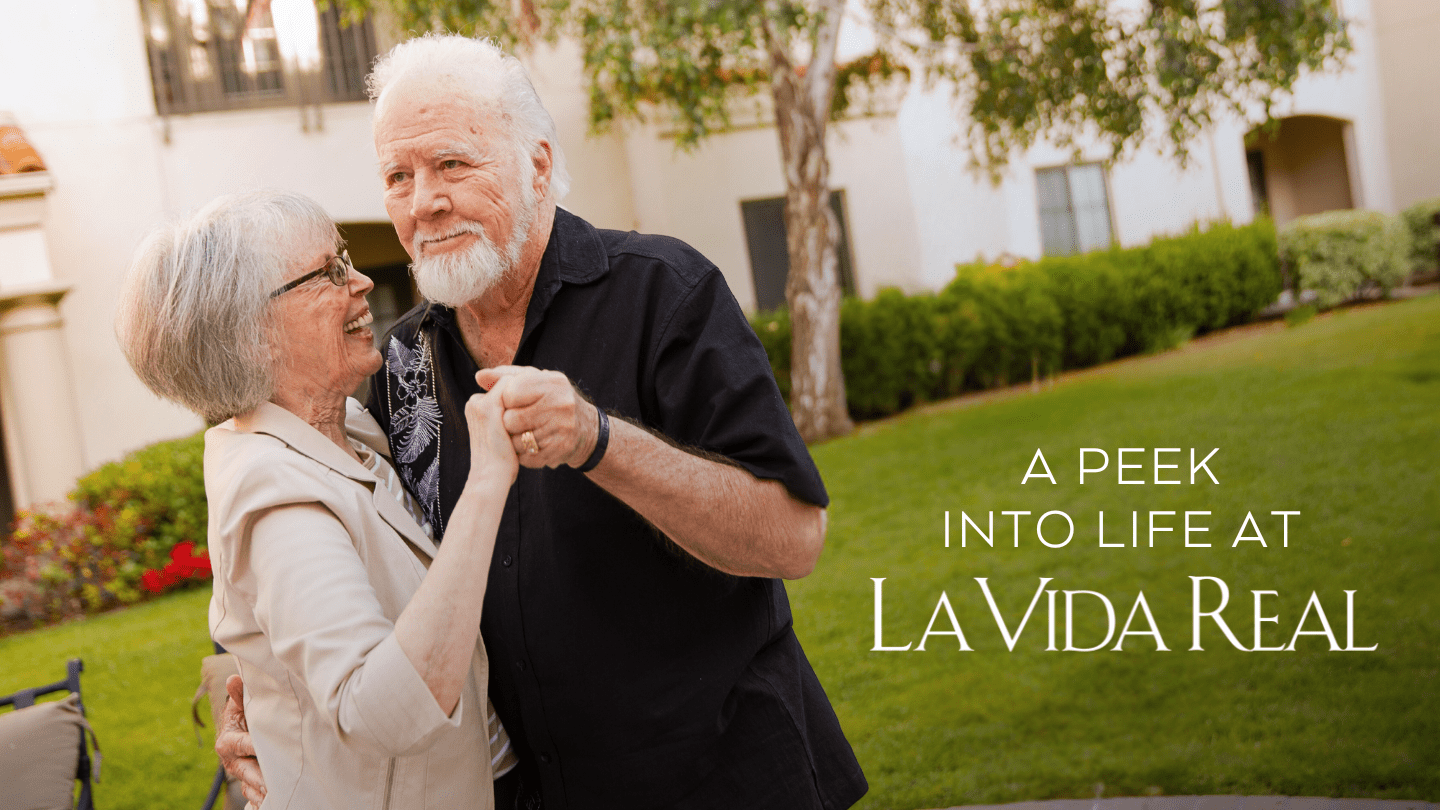A Guide to Caregiving for Seniors

Many people with aging relatives step up to act as caregivers, whether alone or coordinated with other family members and friends. Caregiving is helping an older adult with everyday tasks that they can no longer manage alone while living independently. Caregivers can be paid or unpaid and take full or part-time care of older adults.
Caregiving is becoming more common than ever in American homes, with an estimated 25% of households providing care to an older relative. Here are some facts about caregivers for seniors that you should know if you’re considering taking on this role, either alone or with help.
What Is a Caregiver?
In its most basic definition, a caregiver is someone who looks after the health and well-being of another person. In the context of this article, a caregiver is someone tending to the health of an older adult, most likely a parent or other older relative.
People need caregivers for many reasons. Some need extra help after an injury or fall, while others may be experiencing illness, memory loss, or chronic conditions that make it hard to perform daily activities. Older adults might need care for all these reasons, as each can be associated with aging.
Some older adults only need partial care, while others require more support. Senior caregiving can be challenging if the individual needs a higher level of support and most of the tasks fall on one person. However, it can also be an enriching experience because you get to spend time with a loved one and strengthen your bond with them.
Caring for seniors can be a full-time paid profession. However, it is common for older adults to be looked after by unpaid family members or informal caregivers. These carers are a vital support in the lives of many older adults who strive to stay independent for as long as possible as they age.
Understanding the Different Types of Caregivers
There are a variety of caregiver types, and which kind your loved one needs depends on several factors. These include their health, level of independence, and finances.
Here are some of the most common types of senior caregivers:
- Family caregivers are (usually) unpaid family members who care for a relative. While it’s possible to receive some reimbursements for care, most family caregivers do not gain financially from caring for their loved one. Family caregivers support their relatives in many ways, especially by offering emotional support. This type of caregiver has played a crucial role in families across cultures and time, as many families value caring for aging parents as an important familial duty.
- Professional caregivers are certified carers who earn a wage for their services. Professional carers can work in various settings, including in the older adult’s home or an assisted living community. They can be private duty caregivers hired through an agency, home health caregivers whose work can be covered by insurance, certified nursing assistants (CNAs), or even virtual caregivers. Which one you choose depends on your relative’s needs and the possible costs associated with the level of care.
- Informal caregivers are not professionals but also not family. While not blood-related to the individual, a volunteer caregiver often has a close connection or relationship with them. This could be a friend or community member who has the time and resources to help give care and companionship to their loved one. And like family caregivers, volunteer caregivers typically only earn money if they take steps to become a certified carer.
Typical Caregiver Duties
Caring for older adults means you must wear many hats, as the tasks can vary widely. One of the most common tasks category is personal care. Some older adults need help with light tasks, while others may become more dependent on their carers over time.
Personal care activities include:
- Bathing
- Grooming
- Using the washroom, both during and cleaning after
- Dressing
- Eating
Family members can handle most of these tasks if their loved one is still relatively independent and mobile. However, if you notice gradual changes in eating and hygiene habits, it may be a sign that your aging parent or relative might need some extra help.
Older adults at this stage will also need some help around the house. They might need a hand with household chores like cleaning, laundry, yard maintenance, or cooking. If they are having trouble lifting, your relative might also need help grocery shopping and carrying these items to and from the car.
You can handle these tasks yourself or devise other solutions if your finances allow. Hiring someone to clean or do yardwork now and then is one option, as is ordering groceries or meal kits online. It’s up to you and your relative to decide. You might also have to start making more financial decisions for your relative.
Lastly, simply offering emotional support is a huge part of caring for seniors. Regular visits can do wonders for their physical and mental health, as they can ward off the feelings and effects of loneliness. Talking and lending an ear show that you care and value what your relative has to say. If your older relative is dealing with any memory or mood changes, it’s important to remember to keep calm and patient with them when they express themselves.
Managing Parent-Child Role Reversal
Caring for an aging parent means that the traditional parent-child roles will become somewhat reversed. Throughout your lifetime, your parent has supported and cared for you in many ways. Now, it’s your turn to do the same for them. Even though many children step up to become their parent’s primary carer when they need assistance, both parent and child can find that the flipped roles can be tricky to navigate.
It’s normal for there to be some tension in the beginning as your parent adjusts to the idea of needing help, especially from you. They have typically been in control throughout most of the relationship, and now it’s your turn to make decisions and be the primary carer in the family. Initially, there might be some pushback against your decisions for them simply because they aren’t completely in control anymore.
It’s vital to keep communication with your parent open and relaxed. There are bound to be tense moments, so let your parent know it’s okay to discuss these feelings. Have them set personal boundaries in the beginning. If they’re uncomfortable with you helping them bathe or get dressed, you might need to ask for outside help doing these things. Both of you should have reasonable expectations of the arrangement and participate in making big decisions.
You’ll be very busy caring for your aging parent. Even so, don’t forget to take time for yourself. It’s a stressful job, and you don’t want to become overwhelmed or burned out. Don’t be afraid to ask for help when you need it.
Consider finding others in a similar situation, like a support group or simply friends you can talk to when things are difficult. It’s better to have someone to vent to rather than bottling up your feelings and potentially arguing with your parent later.
Supporting Family Caregivers
If you’re not your parent’s primary caregiver, there are ways that you can support your family member who is. It’s a hard job that many overlook, so try to make yourself available when you can. You can start by asking yourself what you would need if you were in the carer’s shoes. If you can pitch in with caring for your relative, that’s a great start. If not, ask if there are any easy chores or tasks that you can do for them, like picking up groceries or preparing a meal.
Sometimes, all a caregiver needs is a listening ear during challenging moments. Caring for an older relative can be rewarding, but seeing them slowly lose their independence can also be tough. As mentioned, some older adults might react to the role reversal by being stubborn or lashing out. Support your family caregiver by being there when they need someone to talk to about these difficult moments.
Also, remember that your family caregiver’s schedule is probably pretty full, between taking care of their parent, working, and possibly taking care of a family of their own. There are only so many hours in a day, so don’t hold it against the carer if they need to cancel plans or miss out on social events they usually wouldn’t. If they do the bulk of the caring alone, they need a little flexibility in their schedule to prioritize the most important things.
Long-Term Care Planning
Some carers realize they won’t be able to take care of their older relative all alone, especially if their health or mobility deteriorates. In that case, it’s time to consider long-term care plans.
Long-term care can take different forms depending on the individual’s:
- Health
- Age
- Mobility
- Finances
One option is to find in-home care for your older relative, either separately or together with family caregiving. An in-home carer can help with many of the tasks mentioned in this article. They are professionals trained to work with older adults or those who need help performing everyday tasks.
Other options include retirement communities or care homes, depending on the older adult’s needs. Those who are quite active and in relatively good health might consider moving into a senior living community. Those who need more care would be better suited to living in a nursing home.
Senior care communities have, as the name suggests, nurses and healthcare professionals on staff who can provide your relative with the assistance they need around the clock. Some senior care homes specialize in specific types of care, like Alzheimer’s or memory loss. This means the staff has further training to care for residents facing these health issues. While opening up the long-term care conversation with your aging relative might seem intimidating, it could be necessary for their long-term well-being.
Find the Right Senior Community With SRG
SRG offers resort-style living to older adults across the country in our 19 luxury senior living communities. We believe in helping our residents along their healthy aging journey by providing activities, programs, and care that support the mind, body, and soul.
We have various living options depending on your needs to ensure you get the care you need and the lifestyle you want. Any of our options provide the best level of care in a vibrant community where residents are encouraged to explore and grow as individuals.
Contact SRG today to learn more about our communities and options for top-level senior care.




